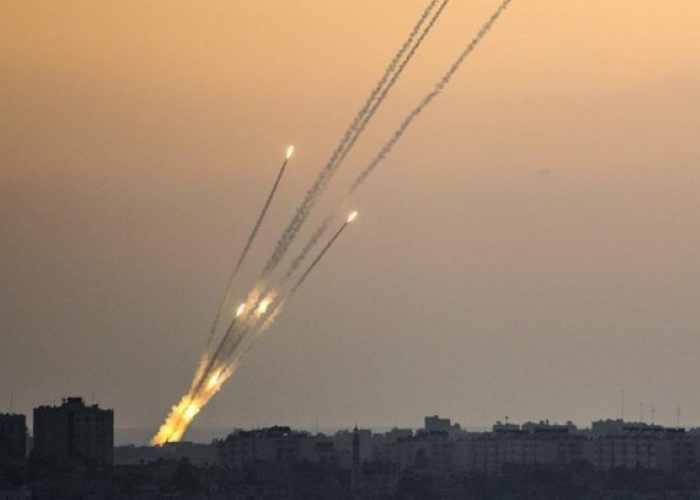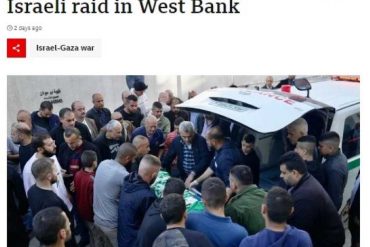On the night between April 23rd and 24th thirty-six rockets were fired at Israeli communities by assorted terror factions in the Gaza Strip, including Fatah’s Al-Aqsa Martyrs’ Brigade. The following night saw two more attacks and the night after that – April 25th to 26th – three more attacks took place.
Visitors to the BBC News website – which is described by the corporation as “a permanent public record…in the public interest” – have to date seen no reporting whatsoever on those attacks.
Listeners to a news bulletin in the April 24th edition of the BBC Radio 4 ‘Today’ programme did however hear 59 seconds of reporting (from 1:04:01 here) after the first night of attacks from the BBC Jerusalem bureau’s Tom Bateman. The item began with a typical ‘last-first’ portrayal of events.
Newsreader: “Israeli aircraft have carried out raids overnight on the Gaza Strip in response to repeated barrages of rockets fired by Palestinian militants. More than 30 were directed at towns and cities in southern Israel. There are no reports of any casualties. From Jerusalem, here’s our Middle East correspondent Tom Bateman.”
Bateman: “This is the worst round of fighting between Gaza militants and Israel in a year and a half. The rocket barrage began before midnight and continued through to dawn, triggering air-raid sirens in Israeli towns near Gaza. Several missiles were shot down by Israel, whose war planes and attack helicopters then bombed militant sites in the Strip. Palestinians reported loud explosions through the night. Before the flare-up the armed wing of Hamas – the militant group that controls Gaza – had said it was ready to fight, following rising tensions this week on the streets of Jerusalem. There have been clashes involving Palestinians, Israeli police and a far-right Jewish group.”
Bateman’s reference to “a year and a half” appears to refer to the November 2019 attacks when over 560 missiles were launched into southern and central Israel. Perhaps the fact that the BBC only reported around a third of more than 100 missiles launched in February 2020 (and ignored many more additional attacks throughout that year and this) caused Bateman to come up with that erroneous claim.
Notably, the BBC continues to insist on portraying terror factions that attack sleeping civilians with military grade rockets as “militants”.
Also notable is that while Bateman was clearly aware of statements put out by various Hamas functionaries encouraging violent rioting on the streets of Jerusalem, that information was completely absent from his reporting on that story.






Bateman has a problem – he reports from a Jewish country lies, mistruths about it yet he is still permitted to stay here.
Had he done the same thing in an Arab country he would not be alive to tell the tale!
I fail to see why the Israeli government continues to give this bitter and twisted so-called journalist a work permit. Bateman is one of the more biased reporters in Jerusalem, groomed by Bowen the anti-Israel architect, and never ever tells the truth, he is a disgrace to his so-called ‘profession’